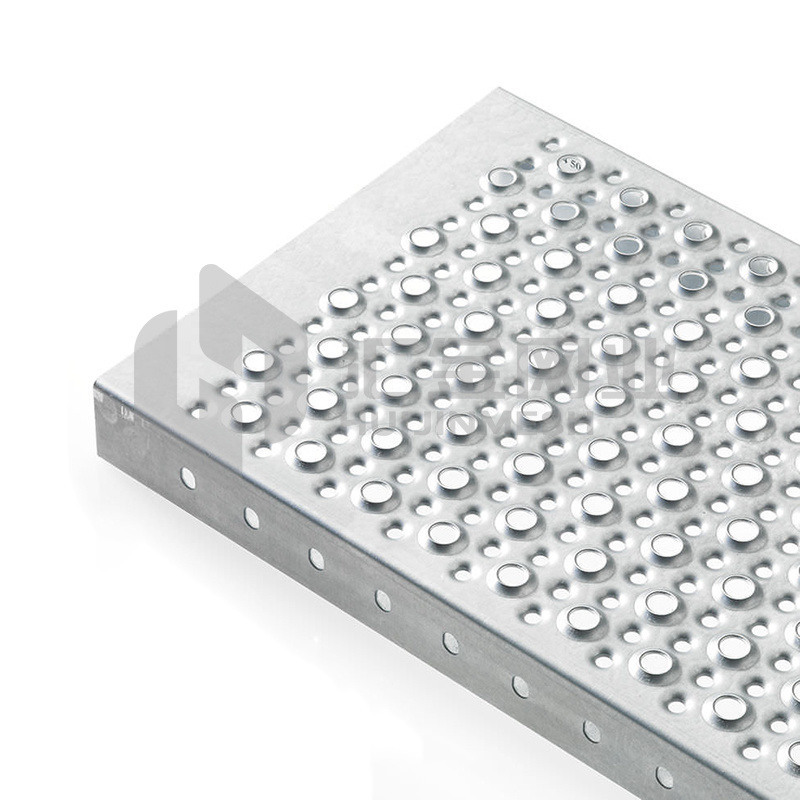
Transform Your Space with Tailored Stair Tread Safety Grating Solutions
Jun 18,2025
Transform Your Space with Tailored Stair Tread Safety Grating Solutions
In today’s fast-paced world, ensuring safety in our living and working environments has become paramount. One area that often goes overlooked is the stairs. Whether in residential or commercial settings, stair safety is critical. **Stair tread safety grating** offers a practical solution that not only enhances safety but also elevates the overall aesthetic of any space. In this article, we will delve into the transformative power of tailored stair tread safety grating solutions, exploring their benefits, types, installation procedures, and maintenance tips.
Table of Contents
- Understanding Stair Tread Safety Grating
- Benefits of Stair Tread Safety Grating
- Different Types of Stair Tread Safety Grating
- Materials Used in Stair Tread Safety Grating
- Installation Process of Stair Tread Safety Grating
- Maintenance Tips for Stair Tread Safety Grating
- Choosing the Right Stair Tread Safety Grating
- FAQs About Stair Tread Safety Grating
Understanding Stair Tread Safety Grating
Stair tread safety grating refers to specially designed materials installed on stair treads to prevent slips and falls. These grates provide a textured surface that enhances traction, making it easier for individuals to navigate stairs safely, especially in high-traffic areas or places where moisture is present. The design can vary significantly based on the specific needs of the environment, providing both aesthetic and functional benefits.
Benefits of Stair Tread Safety Grating
Enhancing Safety
The primary advantage of using stair tread safety grating is the enhanced safety it provides. The textured surface minimizes the risk of slipping, reducing accidents that can lead to serious injuries. This is particularly crucial in commercial settings where foot traffic is high.
Improving Durability
Stair tread safety grating is designed to withstand various environmental conditions, ensuring longevity. Materials used in safety grating are often resistant to wear, chemicals, and extreme weather conditions, making them suitable for both indoor and outdoor use.
Customization for Specific Needs
One of the standout features of stair tread safety grating is the ability to tailor it to specific needs. Different colors, sizes, and materials can be selected based on the aesthetic preferences and safety requirements of a space. This customization ensures that safety grating seamlessly integrates into the existing design.
Easy Installation
Many stair tread safety grating solutions come with simple installation processes, allowing for quick upgrades to existing staircases. Professional installation services are also available to ensure accuracy and durability.
Different Types of Stair Tread Safety Grating
Open Grating
Open grating features a series of bars or slots that allow for excellent drainage, making it ideal for outdoor staircases exposed to rain or snow. The open design helps prevent water accumulation, further enhancing slip resistance.
Textured Grating
Textured grating provides a rougher surface that improves grip, making it a popular choice for indoor stairs where users may wear different types of footwear. This type of grating is often used in commercial spaces where safety is a top priority.
Anti-Slip Tread Strips
Anti-slip tread strips can be added to existing stairs instead of replacing the entire surface. These strips offer an economical solution to improve safety without extensive renovations.
Materials Used in Stair Tread Safety Grating
Aluminum
Aluminum is lightweight yet strong, making it a popular choice for stair tread safety grating. It is resistant to rust and corrosion, ensuring a long lifespan even in harsh environments.
Fiberglass
Fiberglass grating is known for its high strength-to-weight ratio and is often used in industrial settings. It provides excellent slip resistance and is resistant to chemicals and moisture.
Steel
Steel grating is robust and offers significant load-bearing capacity, making it suitable for heavy-duty applications. It is often coated with protective materials to enhance resistance against rust and wear.
Installation Process of Stair Tread Safety Grating
Step 1: Assessment and Measurement
The first step in installing stair tread safety grating involves assessing the stairs' dimensions and condition. Accurate measurements are essential for ensuring a proper fit.
Step 2: Selecting the Right Grating
Choose the appropriate type of grating based on the stair location, expected foot traffic, and aesthetic preferences. Consulting with a specialist can help in making the best choice.
Step 3: Preparing the Surface
Before installation, the stair surface must be cleaned and prepared. This may involve removing old tread materials and ensuring a smooth base for the new grating.
Step 4: Installing the Grating
Follow the manufacturer’s instructions for installing the chosen grating. This may include securing the grating with screws, adhesives, or clips, depending on the design.
Step 5: Final Inspection
Once installed, a final inspection should be conducted to ensure the grating is securely in place and meets safety standards. This verification step is crucial for guaranteeing user safety.
Maintenance Tips for Stair Tread Safety Grating
Regular Cleaning
Keeping stair tread safety grating clean is essential for maintaining its slip-resistant properties. Regularly remove dirt, debris, and moisture to prevent buildup that could lead to slips.
Inspect for Damage
Periodically inspect the grating for signs of wear or damage. Early detection can prevent more significant issues and ensure continual safety for users.
Replace Worn Areas
If specific areas of the grating show significant wear, consider replacing those sections to maintain safety. Many manufacturers offer replacement parts to make this process easier.
Choosing the Right Stair Tread Safety Grating
Selecting the right stair tread safety grating involves considering various factors such as the environment, expected foot traffic, and aesthetic preferences. It’s essential to consult with professionals who understand the specific safety requirements and can recommend the best solutions. Customization options also allow you to select colors and designs that fit seamlessly into your space.
FAQs About Stair Tread Safety Grating
1. What is stair tread safety grating?
Stair tread safety grating is a specialized material designed to prevent slips and falls by providing a textured surface for better traction on staircases.
2. How do I know if I need stair tread safety grating?
If your stairs are prone to moisture, high foot traffic, or have a history of slips and falls, installing safety grating is advisable to enhance safety.
3. Can I install safety grating myself?
While some safety grating products allow for DIY installation, consulting with professionals ensures that the installation meets safety standards and is correctly fitted.
4. How often should I maintain stair tread safety grating?
Regular maintenance should be performed, including cleaning and inspections, to ensure the grating remains effective in preventing slips.
5. What materials are best for stair tread safety grating?
The best materials depend on the specific environment; options like aluminum, fiberglass, and steel each offer unique benefits such as durability, slip resistance, and weather resistance.
Conclusion
In conclusion, tailored stair tread safety grating solutions are essential for enhancing the safety, functionality, and aesthetic appeal of stairs in any environment. By understanding the various benefits, types, materials, and installation processes, you can make informed decisions that prioritize safety without compromising on design. Investing in high-quality safety grating not only protects users but also transforms your space into an inviting and secure environment. Whether for residential or commercial applications, the right stair tread safety grating can make all the difference.






